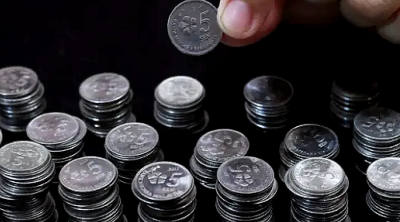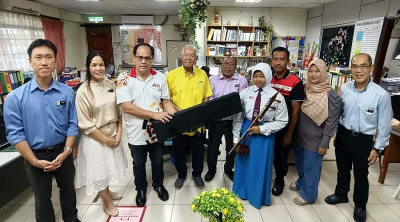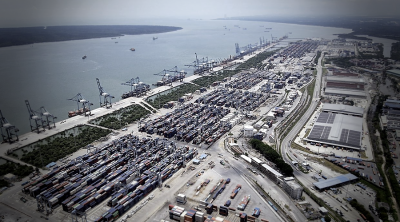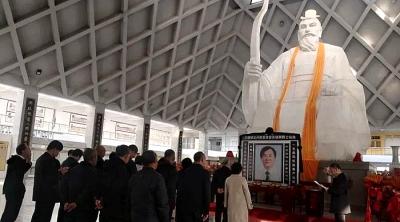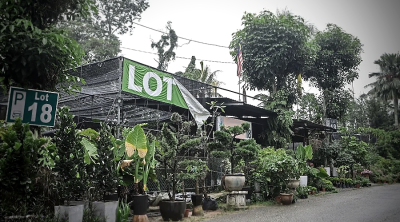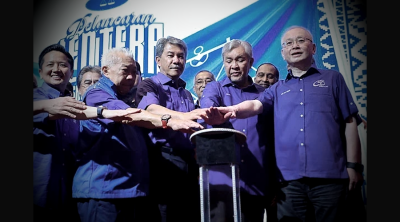Prime Minister Sanae Takaichi looks to have made a good diplomatic debut, considering that she just took office.
She made her first solid step forward at summits associated with the Association of Southeast Asian Nations. Shortly after, she held a Japan-U.S. summit with President Donald Trump, where she seemed to inherit the good relationship between the late former Prime Minister Shinzo Abe and the U.S. leader.
To deliver on her policy goal of a “Japanese diplomacy that flourishes on the world’s center stage,” Takaichi will have to mobilize what she calls “the latent power and vitality of Japan and the Japanese people.”
What kind of “latent power” do Japan and the Japanese people truly have?
Looking around the world at present, only raw power seems to prevail. In the Palestinian territory of Gaza, the Islamist group Hamas recently accepted a ceasefire because it was weakened by Israel, which pushed forward with its destructive offensive despite global condemnation for “violating international humanitarian law.”
The conflict in Gaza originally broke out after Hamas’ surprise attack against Israel, in which it killed many Israelis and took hostages.
The two sides then engaged in a clash of raw power, causing terrible sacrifices for those living in Gaza, and only recently have they finally agreed to the ceasefire.
U.S. President Donald Trump’s tariffs involve no military power, but they instead entail the exercise of power through economic transactions.
They are an attempt to change other countries’ behavior by threatening to inflict economic damage if they don’t listen.
China, too, has often placed economic sanctions on countries with policies that it finds inconvenient.
The only way to ward off hard power that is used to intimidate is the exercise of hard power. Ukraine has had no choice but to defend itself militarily against the Russian invasion, and countries supporting Ukraine have been pressuring Russia with hard power—economic sanctions. Japan has exercised hard power of its own by joining sanctions against Russia.
Using power constructively
In an unstable security environment where there are military threats, a country can only prevent attacks by enhancing its defense capabilities and taking an effective deterrence posture.
Deterrence is the act of discouraging an attack by showing a potential adversary that should it attack, the damage it will suffer will outweigh any gains. Of course, military power is essential in this regard.
Takaichi’s instructions to strengthen Japan’s defenses are in line with her determination to enhance deterrence.
However, raw power is not the only form of hard power. The reason Abe’s diplomacy was highly regarded by many countries is not because he exercised raw power.
Power is, in a broad sense, the ability to achieve the results one desires, and in a narrower sense, the ability to make others act in the way one desires. Power does not have to function simply through intimidation or coercion.
For many countries, national security is an obvious priority. Countries therefore seek to maintain their defense capabilities, and if necessary, improve deterrence by concluding military alliances.
Nonetheless, what many countries, including Japan, seek in international relations is not merely security in the narrow sense.
Nations also want to develop their economies, safeguard the well-being of their populations and prevent damage from natural disasters.

For economic development, it is vital for a country to improve education and the science and technology capabilities of its people and appropriate fiscal measures must be implemented to achieve these goals.
Moreover, there is a need for an environment where trade and investment can be conducted properly.
Japan has a strong reputation around the world because it has contributed to the development of many countries outside of security in the narrow sense.
Such an approach does require hard power in the form of economic resources. Many projects can’t be undertaken without funds; various types of production require equipment.
Japan has provided developing countries with official loans, including yen-denominated loans, and grants as part of its official development assistance (ODA).
It has supported the development of transportation, water supply and sewage systems, medical care, education and other infrastructure around the world, helping to improve the economic and social development and safety of many countries.
Japan’s ODA has also benefited Japanese companies, who gained an expanded market and investment opportunities.
Japan has thus used its economic resources for hard power, but in a constructive rather than punitive way. This has been one element of Japan’s power up to now.
Knowledge and empathy
However, military and economic power are not the only useful forms of power.
The power that can be wielded other than hard power was called “soft power” by Harvard University Prof. Joseph Nye, who passed away early this year. In my own interpretation, this power can be exercised through knowledge and empathy.
Knowledge-based power could also be called persuasion. It involves convincing others by explaining something to them: “This is the reality, so it’s better to do it this way.”
Abe gained Trump’s trust by explaining the reality that a good Japan-U.S. relationship was also vital to the U.S. economy.
In the international community, the key question is how to present credible knowledge and build a broad consensus.
Lately, there have been high hopes for Japan to play a coordinating role in the international community in such fields as global health, plastic pollution, banning land mines, critical data handling and AI regulation.
Knowledge-based power can be exerted by broaching global challenges and providing the knowledge to solve them.
Also in the area of development cooperation, Japan has been recognized for sharing a variety of good practices, such as through the kaizen concept of continuous improvement, which is based on experiences in Japan and other countries.
Teaching people how to fish, rather than just handing them fish, is a useful exercise of knowledge-based power.
Next is empathy-based power. In fact, common feeling and solidarity in the international community is no easy thing.
But in one overseas program by the Japan International Cooperation Agency, volunteers in various parts of the world have fostered affinity for Japanese people through their support activities.
This is also true of cultural goods, such as anime, that have spread from Japan to the world, and more recently, the success of Japanese athletes like Shohei Ohtani.
In the JICA program, many Japanese volunteers have shared their skills and know-how with locals for many years, working hard and cooperating with host-nation communities. Such endeavors yield power from knowledge, as well as from empathy.
Japan is needed by the world because it has steadily contributed to the economic and social development of countries around the world. In that process, the impact of leveraging the knowledge- and empathy-based power, rather than simply providing financial support—that is, money—has been extremely significant.
In an international community that is increasingly divided by geopolitical confrontations, Japan must correctly recognize and steadily exercise its own “latent power,” so that it may realize a “diplomacy that flourishes.”
(Akihiko Tanaka is President of the Japan International Cooperation Agency, He once served as Vice President of the University of Tokyo, and was President of Tokyo-based National Graduate Institute for Policy Studies.)
ADVERTISEMENT
ADVERTISEMENT










